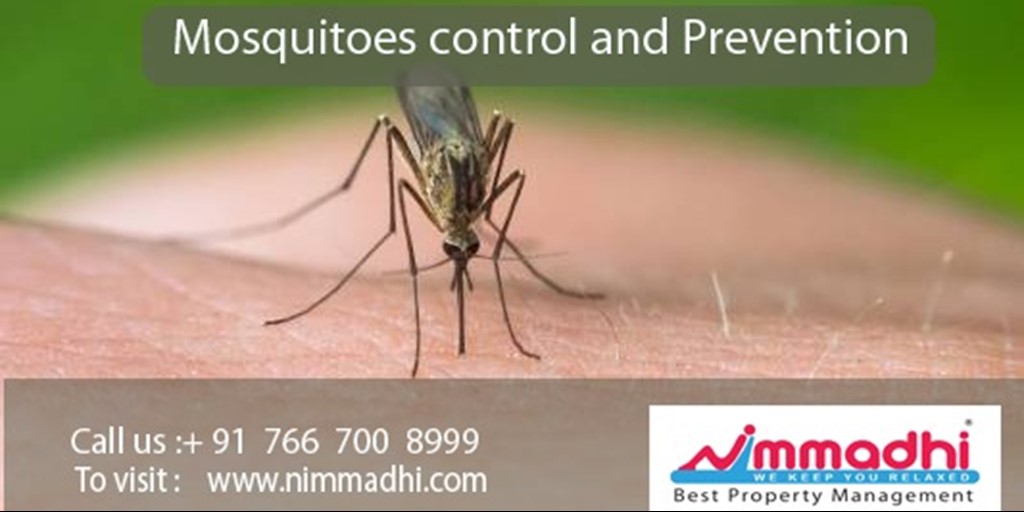hidden
hidden
Blog

Mosquitoes control and Prevention
Mosquitoes control and Prevention
Mosquitoes are small flying insects. Female mosquitoes have a long, piercing mouthpiece, with which they pierce the skin to consume their blood. Some mosquito bites are harmless, but others carry dangerous diseases.
It is only female mosquitos that bite people. Blood serves as a source of protein for their eggs. Male mosquitoes do not consume blood.
Mosquito bites pose a considerable health risk, with mosquito-borne diseases causing millions of deaths a year worldwide. Malaria, one of the most commonly known diseases unique to mosquitos, However, a person can take preventive measures to keep them at bay. This article explores the symptoms and risks, as well as how to avoid bites.
Symptoms
A mosquito bite might lead to a severe infection. Symptoms of a mosquito bite occur shortly after being bitten. A round, red bump with a dot in the middle usually accompanies an itching sensation.
Other signs of a mosquito bite include:
• dark spots that resemble bruising
• swelling or redness
• small blisters in place of hard bumps
Multiple bumps are also common. These indicate that a mosquito pierced the skin in more than one location, or that more than one insect bit the person.
Children and people with weakened immune systems can experience extra symptoms, such as hives, swollen glands, and low-grade fever.
In general, symptoms become less severe with additional bites. This is because the body slowly acclimatizes to the bites.
According to the American Academy of Allergy, Asthma, & Immunology (AAAAI), a mosquito bite might cause anaphylaxis in rare cases. This is a potentially life-threatening condition that causes throat swelling, hives, faintness, or wheezing.
Anaphylaxis requires immediate medical attention.
Complications
The risk of developing a serious disease is the most dangerous outcome of a mosquito bite. There are several harmful infections that mosquitoes can carry and transmit, including:
• Malaria: Parasites cause this life-threatening disease by infecting and destroying red blood cells. To control and treat malaria, early diagnosis is crucial.
• West Nile virus: Most people with West Nile Virus show no symptoms, although some develop a fever or other flu-like symptoms. For a small number of people with the virus, a serious illness develops in the nervous system.
• Zika virus: This is a generally mild condition that initially causes fever, joint pain, and rash. The initial symptoms of Zika usually pass after 1 week, but the disease can lead to congenital anomalies if a woman becomes pregnant after receiving a mosquito bite.
• Yellow fever: This virus causes inflammation in the brain and spinal cord. Its symptoms include fever and sore throat.
• Dengue fever: This disease can trigger high fever, rash, muscle soreness, and joint pain. In the most extreme cases, severe bleeding, shock, and death can occur. Dengue fever is mostly active in tropical and sub-tropical regions.
• Chikungunya: Joint pain, headache, rash, and fever are common in chikungunya. People with the disease require bed rest and fluids for recovery.
If a person notices a mosquito bite and feels any flu-like symptoms or a fever, they should seek medical treatment immediately.
Risk factors
Female mosquitoes tend to target some people over others when it comes to feeding. Researchers do not yet fully understand the reasons for this selective process.
One study noted that mosquitos have sensors that pick up on carbon dioxide emissions and body odor. They can then identify which nearby people would make a suitable feeding ground.
Body heat, movement, and body odors, such as sweat and lactic acid, might also play a role in attracting mosquitoes.
Prevention
Repellent is an effective method for keeping mosquitos at bay.
Preventing mosquito bites is always more effective than trying to treat them, given the potential seriousness of the diseases that can transmit during the bite.
The Environmental Protection Agency (EPA) advise that mosquitoes need water to breed. Removing sources of standing water around the home and garden can reduce the number of mosquitoes in the area.
The following steps can help prevent bites:
• Use screens and netting.
• Cover up the skin when outdoors
• Avoiding wooded and grassy areas.
• When planning to be in mosquito-dense areas, avoid bright clothing, perfumes, and scented beauty products.
For more information on mosquito bite prevention methods to visit Nimmadhi